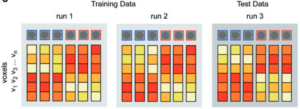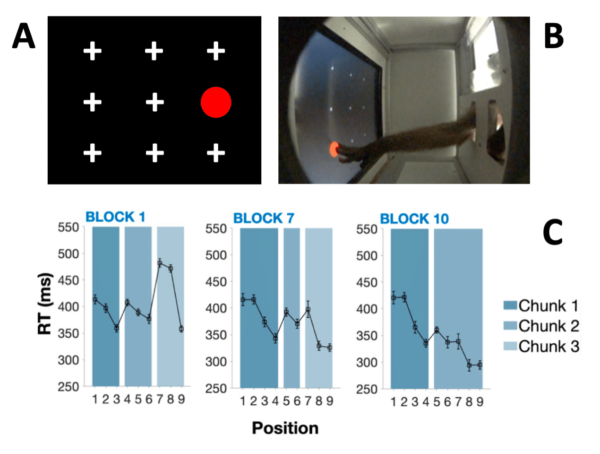|
Dear members of the ILCB community,
As you might have heard, LPL celebrated last week its 50th anniversary. Congratulations LPL! And a big thank you to the successive directors of the laboratoire who made it such a great and attractive place to work! The ILCB would not exist without the strong and sustained involvement of the LPL.
I am pleased to announce that we have a new member on our International Advisory Board. A bit of suspense... many of you have already met her at our last summer school or our last lunch talk... Thank you and welcome Sophie! You can find prof. Sophie Scott’s scientific portrait below.
We have decided at our last board meeting that ILCB is willing to finance summer training internships for master students—in French, “stage de formation (f)estival”. You can find the application forms on our website.
Also, keep in mind that the deadline for submitting the applications for ILCB PhD grants is coming up soon, on the 10th of June.
I look forward to seeing many of you at our annual retreat! We reached the limit of 100 participants and registration is now closed.
Best wishes,
Johannes |
| |
|
The decoder's dictum
“the decoder’s dictum: if information can be decoded from patterns of neural activity, then this provides strong evidence about what information those patterns represent. [...] We critically evaluate the dictum, arguing that it is false"

J.B. Ritchie, D.M. Kaplan, & C. Klein, C.
Decoding the Brain: Neural Representation and the Limits of Multivariate Pattern Analysis in Cognitive Neuroscience.
The British Journal for the Philosophy of Science, 2019, 70(2), 581–607. SMASH
|
| |
|
Chunking mechanisms are central to the acquisition of sequences |
|

Baboons are invited to learn sequences by pointing to a red target circle appearing on a touch screen (Panels A and B). Once the target is touched, it moves to a different position. Baboons repeatedly produce the same sequence of 9 touches for 1000 trials, which are then analyzed as 10 consecutive blocks of 100 trials. Panel C shows mean response times for each position in the sequence in blocks 1, 7, and 10, for one baboon. The sequence is processed in 3 chunks in Block 1 and only 2 in Block 10. Among other results, chunks become fewer and longer with practice.
Tosatto, L., Fagot, J., Nemeth, D., & Rey, A. (2022). The evolution of chunks in sequence learning. Cognitive Science. 46(4), e13124. SMASH @HAL
|
| |
|
New member joins ILCB’s International Advisory Board |
|
|
| |
|
Multimodal behavioral cues analysis of the sense of presence and co-presence during a social interaction with a virtual patient |
|
Magalie Ochs, Jérémie Bousquet, Jean-Marie Pergandi, & Philippe Blache |
|
|
|
Associative symmetry: a divide between humans and nonhumans? |
|
Thomas Chartier & Joël Fagot |
|
|
|
Learning Higher‐Order Transitional Probabilities in Nonhuman Primates |
|
Arnaud Rey, Joël Fagot, Fabien Mathy, Laura Lazartigues, Laure Tosatto, Guillem Bonafos, Jean‐Marc Freyermuth, & Frédéric Lavigne |
|
|
|
Interaction between orthographic and graphomotor constraints in learning to write |
|
Jérémy Danna, Marieke Longcamp, Ladislas Nalborczyk, Jean-Luc Velay, Claire Commengé, & Marianne Jover |
|
|
| |
|
NEW Summer Training Internships |
| |
|
Stage de Formation Estival |
|
ILCB invites applications for Master students’ summer training internships—in French, “stage de formation estival”. The primary goal is to provide students with a training opportunity in our laboratories and platforms during the summer recess, broadly understood. The internship must have explicit training goals. It will have to be framed within a “convention de stage” and have a duration between 1 and 3 months. The student will be compensated (“gratification”) with 500 to 600 EUR per month according to AMIDEX regulations. The next application deadlines are May 31st and June 27th. |
|
|
| |
|
HOLINET: Graphe multi-niveaux combinant une couche lexico-sémantique et une couche grammaticale
|
|
Jean Philippe Prost (LPL) |
|
|
|
Prédiction et apprentissage statistique dans la lecture normale et pathologique : une étude en IRMf (PREDYS)
|
|
Johannes Ziegler (LPC), Elisa Gavard (PhD student, LPC), Yufei Tan (PhD student, LPC), Elise Lefevre (PhD student, Lyon), Eddy Cavalli (ex-ILCB, Lyon), Jean-Luc Anton (IRM), Valérie Chanoine et Franziska Geringswald (CREX) |
|
|
|
Word-predictability norms for the French Sentence Corpus
|
|
Françoise Vitu (LPC) |
|
|
|
Language induced changes of mind (LICOM)
|
|
Elin Runnqvist (LPL) |
|
|
|
Portable Eye-tracking system
|
|
Abdellah Fourtassi (LIS) |
|
|
|
Workshop timecog2022: Perspectives on temporal cognition
|
|
Camille Grasso & Ladislas Nalborczyk (LPC) |
|
|
| |
|
Workshop on Thursday, June 2, 2022 |
| |
 |
|
timecog2022: Perspectives on Temporal Cognition |
|
This ILCB sponsored workshop will bring together researchers from a range of disciplines to discuss the scientific study of temporal cognition in its various aspects, its role for language production and perception (e.g., reading, speaking), and for cognition more broadly. |
|
|
| |
|
ILCB Summer School 2022
The next edition of the ILCB summer school will take place at the CIRM in Luminy from August 29th to September 2nd.

The organization team (on the picture, plus Marien Gouyon) is working hard on a tantalizing program. Details and registration will be available soon.
|
| |
|
Please always check the events page on the ILCB website for the latest update. |
| |
ILCB is affiliated to Aix-Marseille Université, CNRS, INSERM, and Université d'Avignon
5 avenue Pasteur 13604 Aix-en-Provence Cedex 1 B.P. 80975 +33 (0)4 13 55 36 31
Copyright © ILCB 2021
| |
|